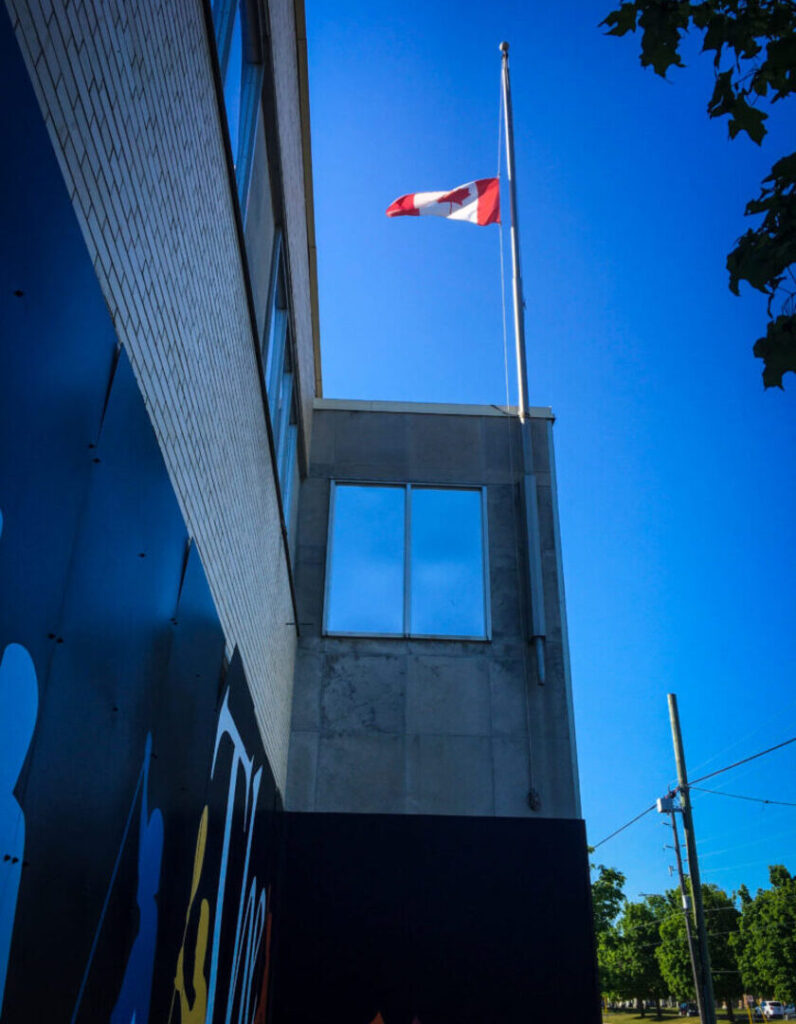*Note: mention of residential schools
Grief, loss, horror, anger, and deep sorrow are being felt by a great many people across this country. We are holding space in our hearts and minds to honour and remember the 215 children who were found buried in unmarked graves at the site of the former Kamloops Indian Residential School, as confirmed by Tk’emlúps te Secwépemc First Nation. As we try to make sense of it all, we must especially remember the families of those children, who now have to face the certainty of their loss.
Regrettably, there will be more stories like this. Senator Murray Sinclair, in his remarks, said, “We know there are lots of sites similar to Kamloops that are going to come to light in the future. We need to begin to prepare ourselves for that.” He wants an independent investigation to look at all burial sites. He also said that survivors, including intergenerational survivors, should understand that this information must be shared in order that all Canadians may apprehend the magnitude of the truth of these abuses.
At The Canadian Canoe Museum, we are actively seeking to understand our shared history. What role can we play? How do we use this time to remember and honour the children and their families and the many others affected by residential schools and their legacy? In 2018 we established our Principles of Engagement with First Nations, Inuit and Metis peoples which have guided the Museum through our own operational programming and approach and also in the design and development approach for the new museum.
More than ever, we remain committed to making space for sharing these truths and providing learning opportunities for all. Underpinning our commitment is our acceptance of the United Nations Declaration on the Rights of Indigenous Peoples. We are committed to the “Calls to Action,” especially those pertaining to museums and cultural organizations among the 94 Calls for Action in the Truth and Reconciliation Commission’s report. We continue to use our programming and exhibitions to create dialogue, share histories, and celebrate and support cultural and language revitalization.
Perhaps most importantly, we are committed to the ongoing work of building new and supporting our existing relationships with First Nations, Métis and Inuit peoples and communities, ensuring that those are meaningful, authentic and grounded in respect and understanding. As we engage with our Indigenous colleagues over the following months, we will be seeking their guidance on the stories that will be told in the new exhibitions and how those should be presented; we will be asking how we can provide support to their communities in our work together so that we can create the space for them to tell their stories.
The news of the 215 deaths is deeply tragic and profoundly troubling. Those Canadians who are not Indigenous are coming to terms with the fact that these things were done by our governments and leaders and in our name. Let us all recognize that while none of us is directly guilty of perpetrating any of these atrocities, we are all responsible for addressing and mitigating the harm they have caused. To that end, we commit to being better, doing better, learning, and supporting each other as we come together to share our history through truthful and honest stories.
Warm regards,

Carolyn Hyslop
Executive Director

Victoria Grant
Chair, Board of Directors
The Indian Residential Schools Crisis Line (1-866-925-4419) is available 24-hours a day for anyone experiencing pain or distress as a result of their residential school experience.







